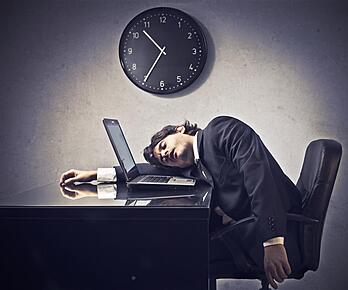Get Some Sleep
Written by Andrew Meyer
8 reasons why sleep is important

Feeling pressed for time? Chances are sleep is one of the first things that will leave your to-do list. Unfortunately, the modern world views sleep as a luxury, rather than a necessity. This is because most believe that the benefits of staying awake and getting work done, far outweigh the cost.
Not only does poor sleep affect your productivity levels, it can also lead to long-term health consequences. Medical conditions such as diabetes, obesity and cardiovascular disease result from a myriad of factors - such as poor nutrition, genetics, lack of physical activity and also sleep deprivation.
1. Poor sleep can increase your risk of type-2 diabetes
Not getting 6 to 8 hours of shut-eye can severely tax the metabolic regulation in the body. However, you will not want to go overboard on sleep to undo the damage. Research shows that even getting too much sleep can raise blood sugar levels. This increases your risk of type-2 diabetes. Therefore, your best bet would be to stick to a consistent 6 to 8 hours.
2. If you think around 4 hours is enough, think again
Researchers have found that sleeping for four hours can negatively impact the insulin use in the body by up to 25%. Insulin resistance is the inability of your body to utilize glucose from the food you eat. If this remains ignored, type-2 diabetes can result and also ultimately, severe illnesses such as heart disease. Fortunately, researchers have found that improving your sleep can help stabilize blood sugar levels and reduce the risk or effects of diabetes.
3. Sleeping too little or too much can cause obesity
People under 40 who get less than 5 hours or more than 8 hours of sleep have a greater risk of increased belly fat, also called visceral fat. Visceral fat is greatly associated with an increased risk of severe health conditions such as diabetes, high blood pressure and heart disease.
4. Not getting enough shuteye can affect how you work-out
If you have been getting less than four hours sleep for the last few nights, you may be limiting your efforts in your fitness routine. People who sleep less than they should each night, often perform less intense physical activity in the gym.
5. Sleep deprivation can trigger depression
According to research, people who suffer from insomnia have a 2 to five times higher risk of developing depression, compared to those who get sufficient sleep. While there is no standard definition for insomnia, it is generally regarded as a condition in which people have trouble staying asleep, or falling asleep. Luckily, you can reduce your risk of depression by finding ways to treat your insomnia. These include relaxation techniques like yoga, aromatherapy or simply switching off all electronic devices an hour before you sleep. Exercising during daytime hours is also a well-known remedy for insomnia, as it leads to a healthy fatigue by night which promotes sleepiness.
6. Troubled sleep increases night-time blood pressure risk
As we mentioned earlier, heart disease and insomnia are closely related. Researchers explain that the central nervous system is generally hyperactive at night, in people who are poor sleepers. This means that those who suffer with this problem have an increased possibility of blood pressure issues at night.
7. Lack of sleep impairs your immune system
Research shows that sleep deprivation increases the risk of inflammation and infections in the body. This can in turn affect your sleep patterns. Not sleeping enough decreases your ability to resist infections. This in turn increases the chances of developing a cold or flu. Again, there is a bright side to this when you do sleep enough, however. Studies show that not only do you resist infections better with adequate sleep, but you also recover much faster.
8. Your brain gets fuzzier when you sleep too much
While getting sufficient sleep is critical in preventing disease, it is also important that we do not oversleep. According to research published in the Journal of American Geriatrics Society, sleeping too much can age your brain by as much as 2 years. It then becomes increasingly taxing to perform daily tasks.

